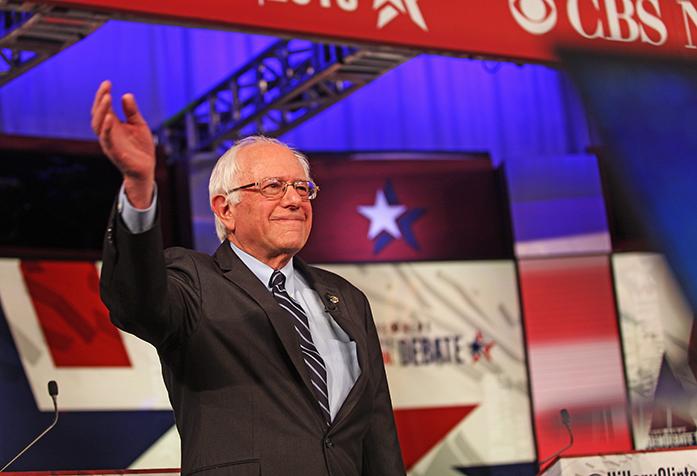On Saturday, the Field House will be the setting for a particularly interesting political rally. Vermont Sen. and Democratic nomination hopeful Bernie Sanders will find himself sharing the stage with a number of musicians, most notably Foster the People and acclaimed indie-rock band Vampire Weekend.
Just days ago, the same venue played host to a Donald Trump rally, which was the scene of numerous disruptions from local activists and protesters, including local Iowa City musician Andrew Alamao tossing a tomato on stage, an anomaly to see at a presidential hopeful’s rally.
Another anomaly on the opposite side of the presidential trail is that the Sanders campaign makes one thing blaringly obvious: It aims to completely capture the ever-fickle young vote in the Iowa caucuses. Music and politics have, historically, seen a convergence countless times, always at the behest of blossoming generations.
This event will undoubtedly draw hundreds of otherwise apolitical students who are more inclined toward the music than the issues. This leaves them ripe for not-so-subtle nudging by the Sanders campaign to get them to caucus in its favor, come Feb. 1. Sanders is essentially plucking potential caucus votes like apples from the liberally fertile orchard that is a major public university.
But if you were to set aside the excitement of free music and big-name bills, you might ask: Why is a political rally looking more like a music festival than, well, a political event?
If could be argued that Sanders’ political support falls flat in the stark contrast that is former Secretary of State Hillary Clinton’s endorsements. While Sanders seems to rely on the political adrenaline of the youth vote, Clinton seems to walk along a more traditional campaign path, always keeping a few congressional people and governors in her back pocket.
It’s a tried-and-true strategy that has led some who have formerly “felt the Bern” to jump ship. Sanders once had the support of the highly influential linguist, social critic, and philosopher Noam Chomsky. Though, it deserves to be noted, Chomsky has recently said in an Al Jazeera interview he would “absolutely” vote for Clinton.
Chomsky said in an interview with Salon in 2015, while speculating if Sanders were to win the 2016 presidency, that “He would be alone: he doesn’t have congressional representatives, he doesn’t have governors, he doesn’t have support in the bureaucracy, he doesn’t have state legislators; and standing alone in this system, he couldn’t do very much. A real political alternative would be across the board, not just a figure in the White House.”
Later, he said, commenting on achieving the changes Sanders has been promising, “It would have to be a broad political movement” and “The mobilization could lead to a continuing popular organization that could maybe have an effect in the long run.”
This is what we could be seeing here, but for Sanders’ Oval Office ambitions to hold any water, they would have to go much further than a free concert at the Field House. And in order to achieve his agenda, he’ll need to transform an election into a movement.



